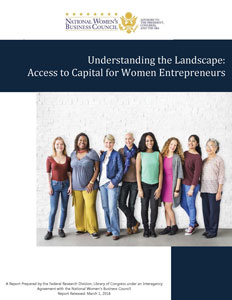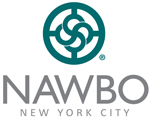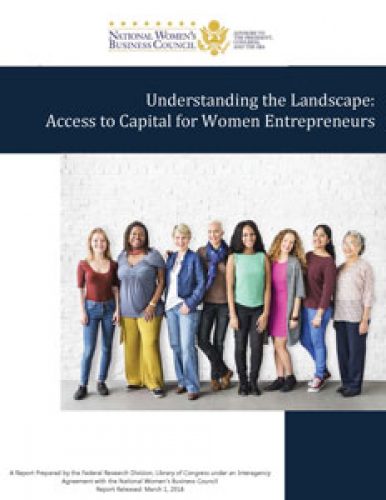Despite major inroads over the years, access to capital remains one of the greatest barriers for women trying to launch, scale and grow their businesses, which means opportunities for all of us to continue to speak up, reach out, educate and innovate to make a difference.
Earlier this spring, the National Women’s Business Council (NWBC) released a report called Understanding the Landscape: Access to Capital for Women Entrepreneurs. The first of four reports released from the NWBC’s inter-agency agreement with the Federal Research Division of the Library of Congress looks at literature published between 2010 and 2017 to better understand literature on women’s entrepreneurship and capital. It also identifies future areas of research and gaps in literature for interested researchers.
The report’s key highlights show start-ups aren’t the only size organization facing bias when it comes to accessing capital. These challenges are ongoing for women-owned businesses as they scale and grow. For example:
- Compared with men, women business owners raise smaller amounts of capital to finance their firms and are more reliant on personal, rather than external, sources of financing.
- Initial disparities in the levels of startup capital in women-owned businesses as compared with men-owned businesses do not disappear in the years following startup.
- A key difference between men and women regarding bootstrapping—financing a business without external capital—is that women choose bootstrapping instead of overdrafts and men choose it to supplement overdrafts.
- Women investors demonstrate a bias toward men business owners, so the gender gap in funding is not likely to narrow simply by having more women become venture capitalists.
- Women in business are often tied to an unconscious association with less credibility and a lack of legitimacy.
There’s good news, however, in one growing area of capital: crowdfunding. Although more men use seed crowdfunding, research shows women are more successful in this arena, most likely because they traditionally have larger and closer social networks they can tap into for a campaign.
At NAWBO, access to capital has always been a key area of focus for our advocacy, educational and collaborative partner efforts. This year marks the 30th anniversary of one of the most game-changing pieces of legislation for giving women business owners access: H.R. 5050, the Women’s Business Ownership Act. Before H.R. 5050, which was pushed through by remarkable NAWBO leaders and their supporters, women who wanted to take out a business loan couldn’t do it without a male relative to co-sign. Today, NAWBO has partner relationships with the best organizations for women entrepreneurs to turn to when they need access, from Bank of America, Wells Fargo, Master Your Card and Fundbox, to the Small Business Administration and National Association of Development Companies. You’ll read exciting content from and about many of these partners in this issue of NAWBO ONE with the theme of “Expanding Your Access.”
Lastly, it’s hard to believe, but my year as your NAWBO National Chair is quickly coming to a close and I am preparing to step into my next role of Past Chair. I’m incredibly proud of the work we have accomplished together this year, from increasing our commitment to advancing women’s entrepreneurship around the globe to growing programs and resources for our NAWBO members. Thank you—to my fellow board members and our staff, members and partners—for the amazing opportunity, and for your support and inspiration!
—Kathy Warnick, 2017-2018 National Board Chair



